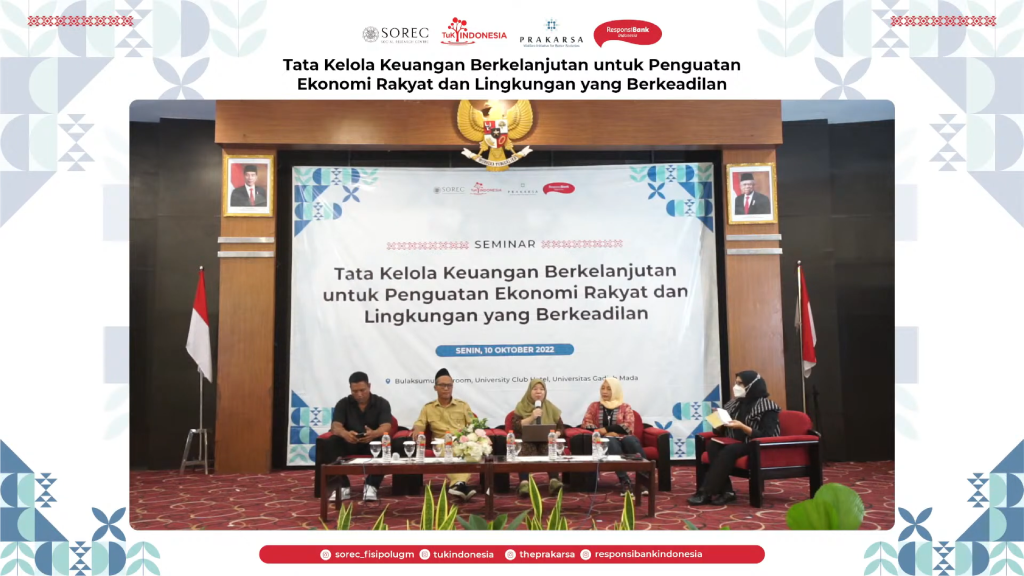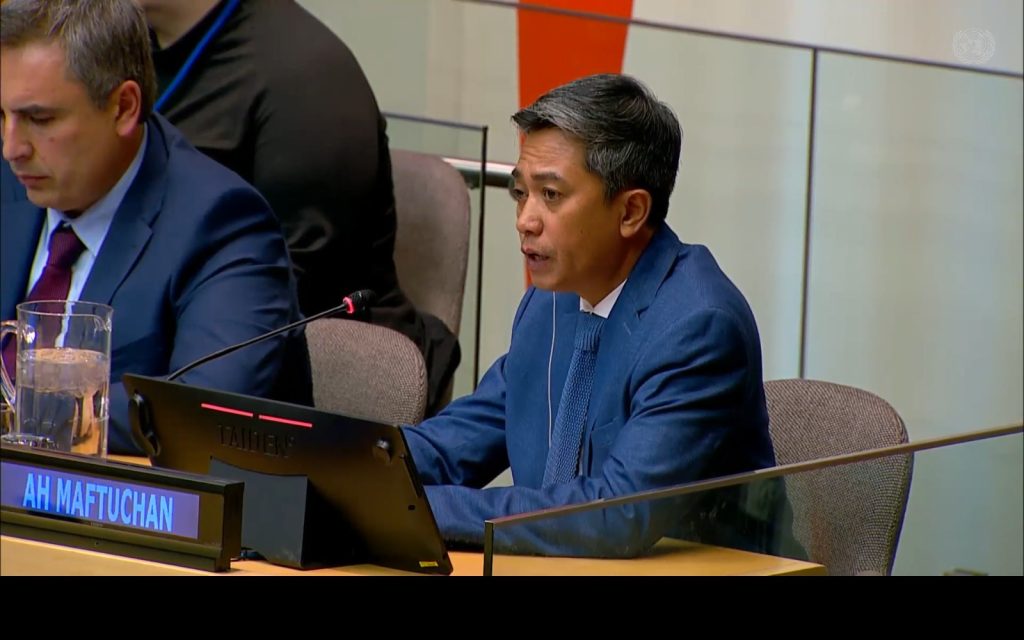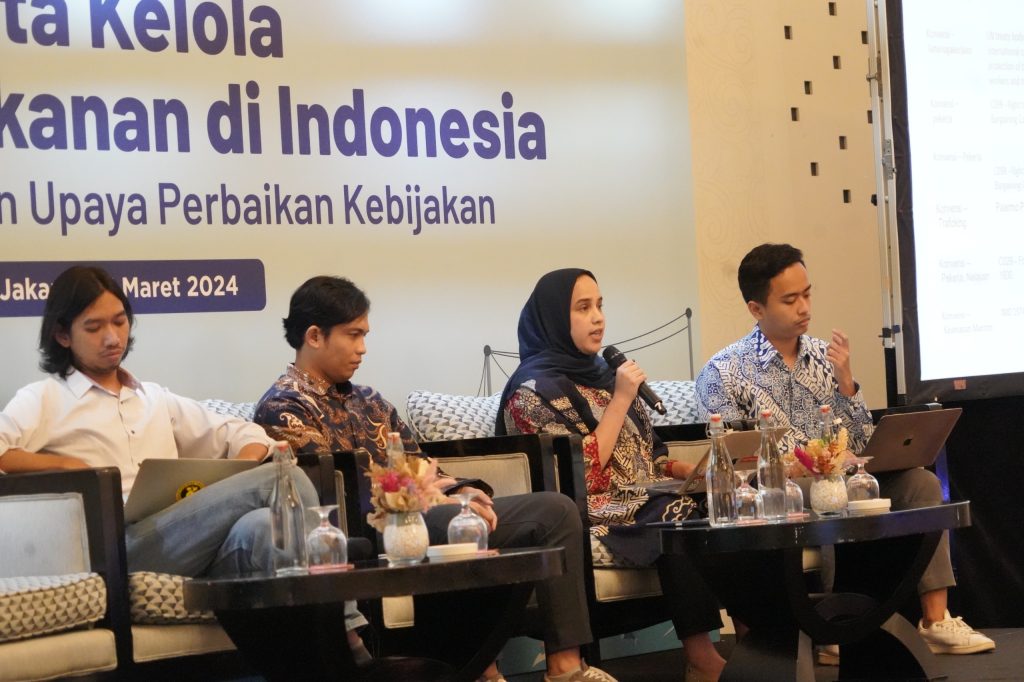
Business development in the midst of the climate crisis must be in line with the principles of sustainable financial management. This was discussed in a seminar entitled “Sustainable Financial Governance for Strengthening the People's Economy and a Just Environment” which was held by the ResponsiBank Indonesia coalition with the Social Research Center (SOREC) of Gajah Mada University and TuK Indonesia. Located at the University Club Hotel, UGM, Yogyakarta on Monday (10/10/2022).
Yulius, Deputy for Micro Business at the Ministry of Cooperatives and SMEs, said on this occasion that Indonesia has a large portion of MSMEs, which is around 64 million or 99,9 percent of the total national business actors, whose role is crucial in accelerating the development of sustainable financial management.
According to him, the challenges faced in implementing the principles of sustainable finance include the limited level of understanding and participation of financial institutions in implementing sustainable businesses because they are considered to cause additional costs. "Business orientation for MSME actors still leads to short-term profits, literacy is needed for MSME actors related to businesses that apply sustainable principles," said Yulius.
Yulius also added that in the next few years, Indonesia needs a sustainable sector investment of 67 trillion. This is a big program and requires well-organized steps involving all components of the nation.
Meanwhile, the Executive Director of The PRAKARSA as well as Bank Indonesia Response Coordinator Ah Maftuchan on this occasion conveyed, Indonesia must continue to strengthen its commitment to implementing sustainable financial governance. "We know that we are experiencing a climate crisis and we need to strengthen our commitment to run a more sustainable business," said Maftuchan.
Furthermore, he conveyed, there are still industry players who are still reluctant to implement the principles of sustainable finance because they are considered unable to produce business.
However, on this occasion Maftuchan emphasized that a sustainable finance approach in business activities can still generate profits. "In addition to producing economically, it can also contribute to the improvement of more sustainable environmental conditions and better social conditions," he said.
The program manager PRAKARSA, Herni Ramdlaningrum added, the implementation of sustainable financial governance must also reflect the principle of inclusiveness. It means, the implementation of a sustainable financial system needs to involve vulnerable and marginalized groups including women and low-income communities.
“If, for example, the principle of sustainable finance is always associated with big business, why don't we try to build a new paradigm that sustainable finance or inclusive finance is the financial industry's support for an economy that has environmental values. This is what we have to roll out and push continuously,” said Herni.
Given that the majority of MSME actors are women and their significant impact on family economic progress, women's access to finance needs to be improved. Banking institutions should have gender-inclusive lending policies and not discriminate against customers regardless of gender.
“There is no sustainable finance without financial inclusion and no financial inclusion without involving women in it.” concluded Herni.



